
Увага! На сайті використовуються cookie файли.
The site uses cookie files
Даний сайт має вікове обмеження.
This site has age restrictions!
Я підтверджую, що мені, на жаль, давно виповнилося 18 років
This autumn, the Wine & Spirits Ukraine exhibition hosted a remarkable gathering titled ” “Holistic Insights: Paradoxes in Ukraine’s Import & Export,” orchestrated by the Drinks+ & Wine Travel Awards team. The event starred Richard Bampfield MW and Robert Joseph, renowned British experts, who delved into the nuances of Ukrainian wine styles and discussed expansive opportunities for the nation’s wine export and tourism sectors. The session not only illuminated the complex landscape of Ukrainian viticulture but also included compelling presentations from seven of Ukraine’s top wine market operators. A tasteful finale featuring a diverse wine tasting shared with a globally connected audience highlighted the universal appeal and promising future of Ukrainian wines.
Segueing from this enlightening discourse, we delve into a series of case studies from the event, each presenting unique challenges and strategic insights from key players in the Ukrainian wine market. These case studies reveal not only the current state of the industry but also the dynamic approaches being adopted to navigate the global stage, address domestic challenges, and harness opportunities for growth and recognition.
The first of these, “Shabo – Navigating Global Markets Against the Odds,” introduces Valentina Parsayeva, who shares Shabo’s paradoxical journey in the export market. This is followed by explorations into the efforts of other leading Ukrainian winemakers and industry influencers, each facing their own set of challenges and opportunities. From enhancing export strategies to innovating within local markets, these stories collectively paint a portrait of a sector ripe with potential and poised for significant breakthroughs on the international wine scene.
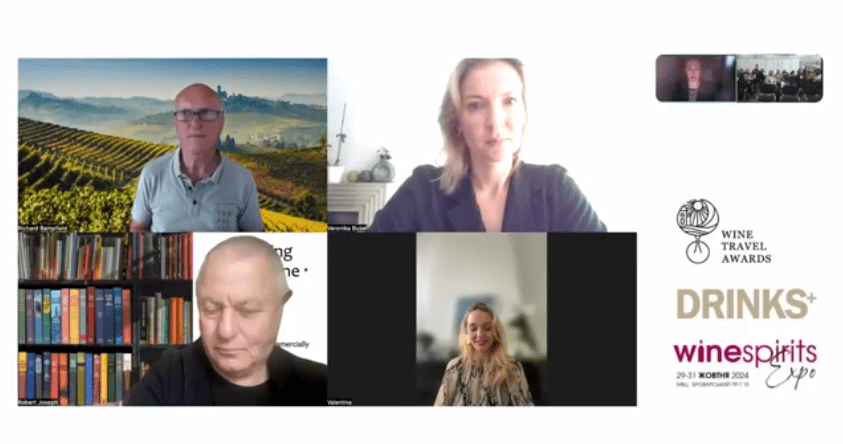
Valentina Parsayeva, who has been the export director at Shabo for over ten years, first noted the paradox that although the company has long and successfully operated in the international market, there will still be booth visitors at ProWein next year surprised that Ukraine produces wine. This underscores that Ukrainian winemakers should prepare for the long haul. It will be decades before the country truly, not just nominally or in reports, takes its rightful place on the world wine map. Naturally, this effort will require significant investments, including state support. Thus, even a generally successful Ukrainian brand faces paradoxes that demonstrate its challenges.
The next paradox Ms. Valentina mentioned is that “for the average consumer abroad, our export price is usually three to five times higher than the base price for Italian and Spanish wines.” Therefore, she believes that quality needs to match the price level. “That’s why, for the last 14 years, we have engaged the most progressive and effective production and viticulture consultants to meet international market demands.”
Since the beginning of the full-scale invasion, Shabo has not ceased production and vineyard work, and the demonstrated paradox was that they never focused on identifying themselves as victims; instead, they moved forward more energetically. As a result, in May 2022, one of the company’s most successful steps occurred: their wines entered the Coop Danmark network (Editor’s Note: Coop Danmark operates as one of Denmark’s leading wine retailers, handling approximately 44% of all wine sold in the country’s grocery sector). “If in 2016 it took three years of annual tastings at ProWine and ten months to sign a contract with the largest Belgian network, in 2022 it only took three months with delivery. We met in May, and by August 24, Ukraine’s Independence Day, our wines were on the shelves in Denmark.”
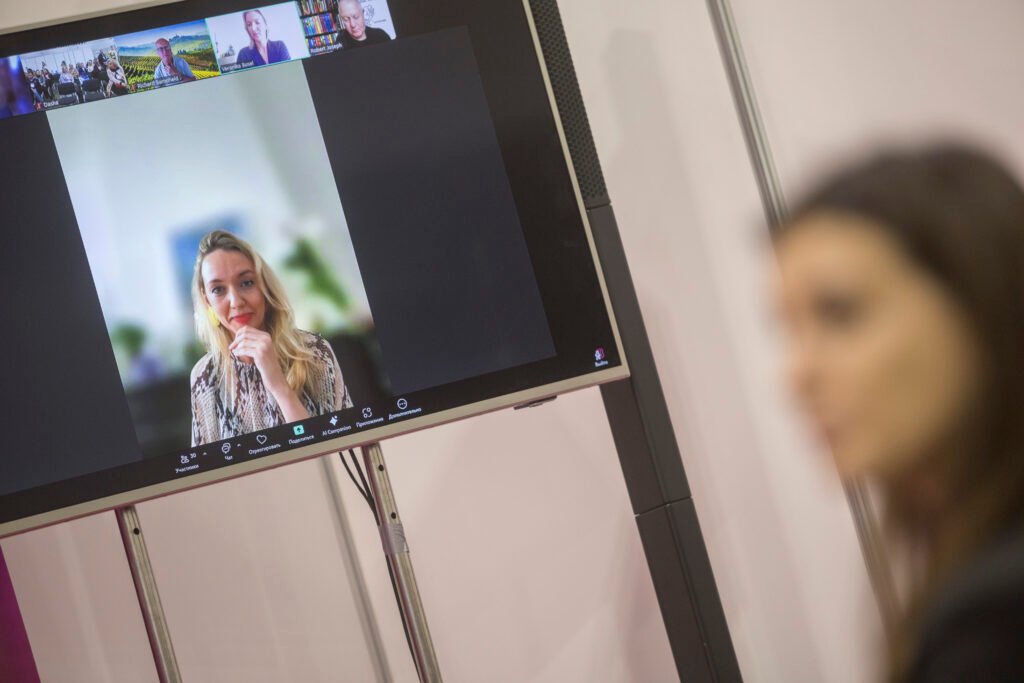
Among the positive paradoxes of wartime, Ms. Parsayeva noted the preservation of active communications with partners, including their continued visits to the winery. Thus, despite the risks associated with shelling, almost immediately after the onset of Russia’s aggression in 2022, a Coop Wine Buyer representative unhesitatingly visited the Shabo production—participating in a tasting, viewing the production, and the Wine Culture Center (Editor Note: The Shabo Wine Culture Center, a unique tourist complex in Ukraine, integrates historical wine traditions with contemporary cultural experiences, featuring a modern winery, historic cellars, a museum, and art installations—all within an active winemaking enterprise.), and could personally relay to the management why they were exactly what he wanted in his network. Additionally, during this time, the winery was visited four times by American importers, Canadians, Belgians, etc. At the end of her presentation, Valentina Parsayeva emphasized that exporting is a lengthy and meticulous task, not only with importers but also directly with end consumers. After all, signing a contract with a one-time delivery is not an indicator of success. Shabo regularly conducts tastings to gauge feedback, including a recent one organized in Finland. “It is crucial to communicate with the end consumer, to understand the situation we are in, the consumer’s tastes, and what they expect.”
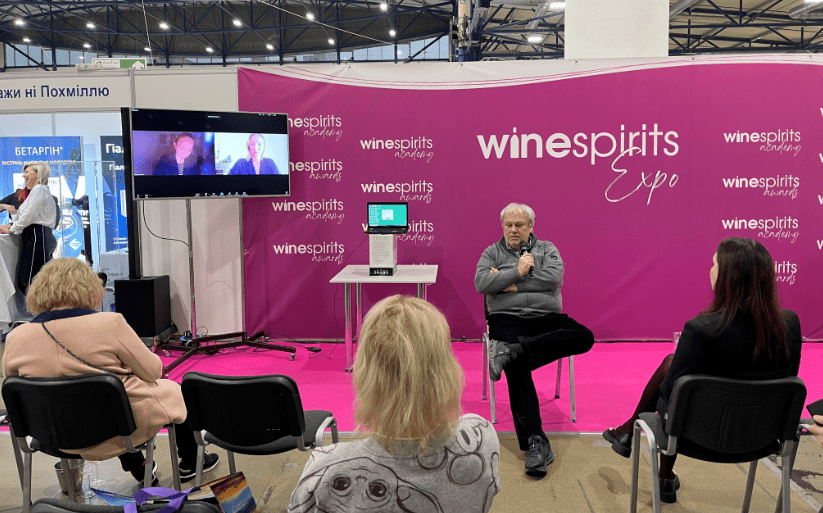
Sergiy Mazur, co-owner and director of Vitis Group, which is the oldest and most powerful importer and distributor in Ukraine, presented the second case. The director of Vitis Group thanked the organizers for this event and, in particular, for the meeting with Robert Joseph, whose books, as one of the most authoritative Ukrainian experts confessed, taught him everything he knows.
Mr. Serhiy discussed a new venture in his business—the production of his own local spirits. Sergiy Mazur’s company has been operating for 16 years, and five years ago, the idea arose to promote the export of Ukrainian wine; he consulted with experts in this field and learned about numerous contradictions in our legislation that hinder domestic export. Therefore, today, the local brands of Vitis Group, thanks to their experience, are successfully developing in the local market, awaiting radical changes in the legislation regarding export. Indeed, to break through on the export front requires a power unattainable for Ukrainian producers. “There are several schemes for interaction between producers and export markets,” explained Sergiy Mazur. “The simplest is when a producer, like Shabo, for example, can enter export markets on their own, participate in exhibitions, and establish direct connections. Another path is that of countries with large companies, like the Chileans with Concha y Toro and Errazuriz – they operate directly without needing state assistance. The third path should be taken by Ukraine.
We have a large number of small producers, and for countries like ours, the best approach is to have a country representative abroad or an agent located in Ukraine. And here our company, in cooperation with several other companies, aimed to create such an agency that would help conquer foreign markets. But it quickly turned out that we live in a feudal state… The legislation is written in such a way that it is impossible to do this a priori. Why? Because there are things like, for example, excise stamps, VAT, and so on, and so on… Currently, we have started producing our own products, launched a line of trade marks, and started cooperating with legal craft producers. But if we were planning to work with the Poles or Germans and, for example, export sparkling wine, which currently requires an excise stamp, we would have to buy, for example, wine from Shabo, according to Ukrainian legislation, they would have to affix a Ukrainian excise stamp, pay excise duty, customs duty, VAT, and give us the finished bottles. After that, we would have to perform some trick so that this stamp ‘evaporated’ and a German stamp appeared, we would have to affix it to this bottle, then customs clear it and send the wine. It may seem that this is not a very big problem. But if you, for example, are a wine producer somewhere in Transcarpathia, Odessa, or Mykolaiv region and want to enter, say, the Hungarian market and even you are lucky – your wines have attracted the interest of some distributor or large retail chain, and they say they want to try two wines from Transcarpathia, two from the Mykolaiv region, etc., they must conclude an agreement with each of these producers, then the producer must gather the entire quantity of ordered bottles, prepare customs documents for the export goods, and send the shipment. This is a problem.” Mr. Mazur also noted that attending international wine exhibitions by Ukrainian winemakers, where they currently have certain preferences thanks to the support of the global community, is not an accessible option for most due to financial insolvency. At the same time, according to Mr. Mazur, “the state today does not participate and is not interested in the export of domestic products. And we need to change that.”
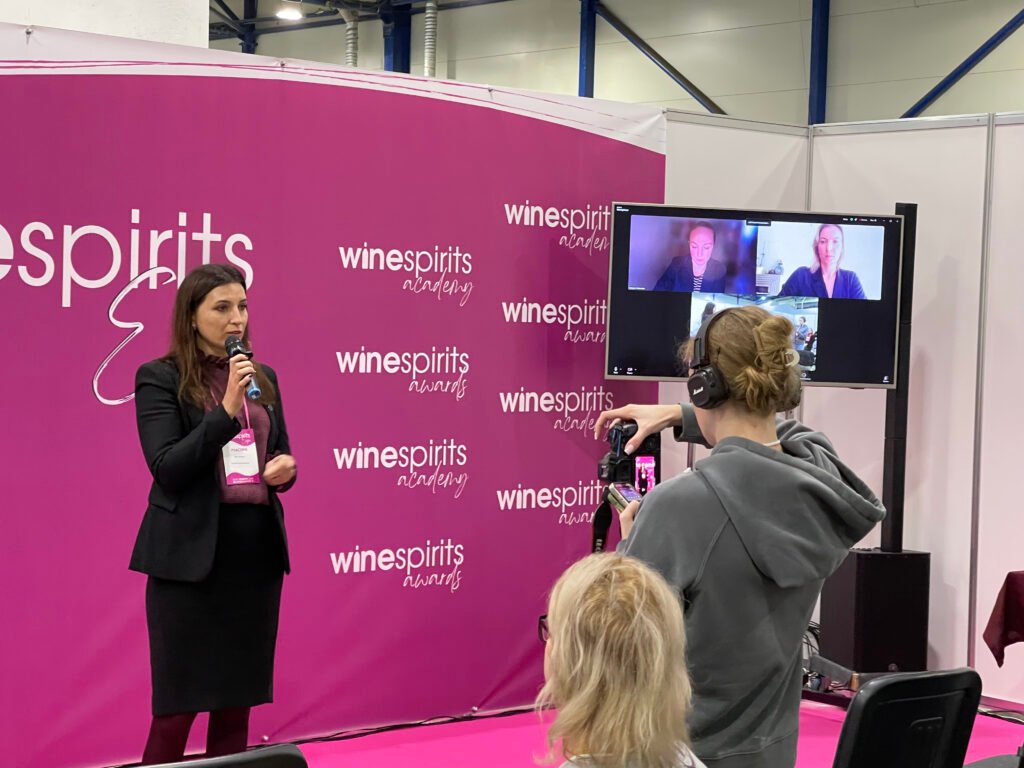
Nataliia Burlachenko, CEO of Big Wines and ambassador of Vinos de La Luz, shared her unique experience of investing in production in Ukraine, including in vineyards, during the war. Agreeably, this fact alone is significant support for Ukrainians and a demonstration of faith in our Victory. Naturally, such an investor must have nerves of steel. The Vinos de La Luz group, led by Dr. Ricardo Núñez, has proven to be just such an investor.
Vinos de La Luz, which owns wineries in Argentina, Spain, Italy, and the USA, began its Ukrainian project during the war in Ukraine, made possible by Dr. Núñez’s decisive leadership as the chief investor. It’s worth noting that Vinos de La Luz is a company skilled at taking calculated risks and making the right investments: Dr. Núñez was among the first sponsors to support the young international project Wine Travel Awards during its inaugural year. Incidentally, this happened during the first year of the war, and we take this opportunity to express our gratitude to our first sponsor.
Ms. Burlachenko explained that modern Ukraine is a country of contrasts and opportunities. Despite the war—or sometimes, harsh as it may sound, because of it—certain industries have begun to move forward and develop. “Businesses take risks, adapt, and succeed, whereas in stagnant economies, there is no talk of investment attractiveness,” she said.
Viticulture and winemaking in Ukraine hold enormous potential, but leveraging this potential requires substantial resources. “We are a large country, yet there are approximately 200 wineries in the entire country, and even fewer have licenses. For comparison, Spain’s Ribera del Duero region alone has 350 producers, with hundreds of regions across the country,” she explained. “Returning to Ukraine, we see that for both producers and investors, it is uncharted territory.”
Winemaking is undoubtedly an expensive industry worldwide, yet it carries weight and significance. Recognizing the importance of the country’s reputation, Ukraine, with the support of Vinos de La Luz, has returned to OIV representation. Ukraine is presented annually at various international events, and interest in both the country and its products—wines and spirits—is growing. “People want to know more about us,” she emphasized. “To meet this demand, we need to produce more, and there must be more of us (winemakers). Yes, we lack state support, but that does not mean we shouldn’t move forward.”
Ms. Burlachenko quoted Ricardo Núñez, who remarked that “Ukraine today is experiencing times similar to Argentina in the 1980s, when 80% of local wines were consumed domestically. The same is happening now in Ukraine. But in a couple of decades, there is a chance to reach an entirely new level.”
Speaking of paradoxes, Ms. Burlachenko humorously noted that her company is paradoxically competing with its own product range. “We are on both sides of the barricades and observe how everything unfolds from different perspectives,” she said.
In her view, it is crucial for Ukrainian winemakers to establish a complete production cycle to achieve success. Otherwise, assembling all the necessary components can be challenging. The Big Wines winery, currently under construction, will feature a full production cycle. Her recommendation: “Aim for comprehensive production.”
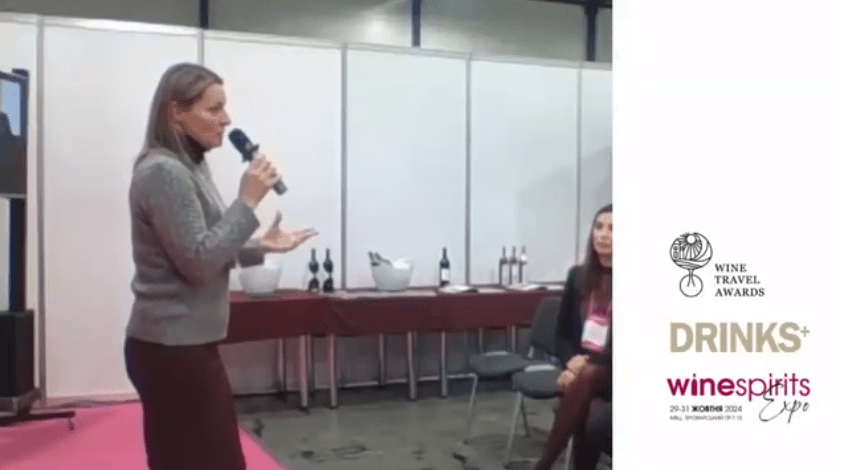
A logical follow-up to the advice from the owner of Big Wines was the story shared by Hanna Kovalevska, a well-known sommelier in Ukraine and co-founder of Bakota Bay Winery, a family-owned craft winery. To transition to a full production cycle and establish their own vineyard, the family took the risk of moving from the Kirovohrad region to the Khmelnytskyi region, near the picturesque Bakota Bay, right in the midst of the war.
At that time, winemaker Ruslan Kovalevskyi, already recognized with numerous awards from various competitions, had spent 12 years researching and studying. He realized that achieving his goal of producing wines of international quality required more than just skill; he needed to control the process from the very beginning, starting with the soil and vine development. This journey was not easy, but overcoming disappointments and challenges, the winemaker found his place in the sun.
Ms. Hanna shared with the audience: “Our winery has just one year of experience, and it was the most challenging year. Yet, we have already obtained a license and offer our customers truly high-quality wine. Additionally, I believe that Podillia is one of the most promising winemaking regions in Ukraine today. Although we have not officially declared ourselves as a microzone yet, we are working on this together with the local winemaking community.
This season, we produced 5,000 bottles of wine for 2023, and they were all sold locally. The positive aspect is that Bakota is a promising tourist destination with beautiful surroundings, and we are located directly on an already popular wine route. That is why we coordinated with a travel agency and host tourists, as is done in many countries worldwide. We showcase the stunning views of Bakota Bay and conduct tastings.
We do not work with distributors, only directly with consumers. And we take personal responsibility for the quality.”
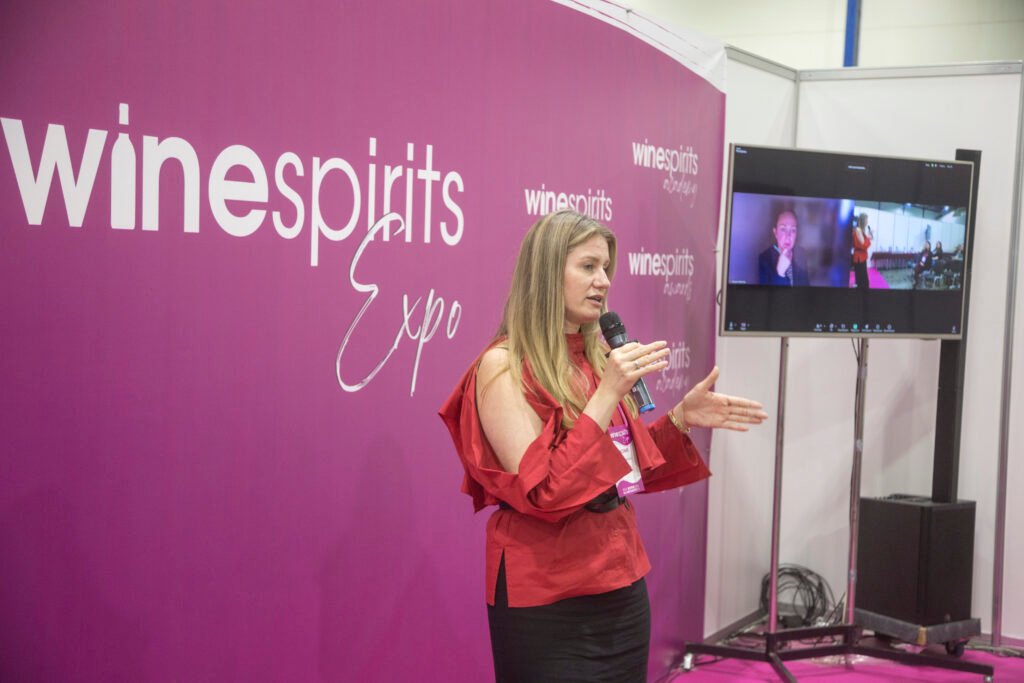
Svitlana Tsybak, head of Wines of Ukraine and the Ukrainian Winemakers Association, was the next speaker, providing event attendees with a significant volume of crucial information about the current state of the industry. Over the past three years, despite all the challenges of the war, the Wines of Ukraine team has not only maintained and developed winemaking in Ukraine but has also carried out dozens of large-scale initiatives aimed at promoting Ukrainian wines of a new wave—and of new quality—worldwide. The geographical reach of Wines of Ukraine’s activities, considering the ongoing war, appears almost fantastic.
The Association was established in 2021 with the aim of supporting small winemakers—providing technical and legal assistance as well as promotion and marketing. In 2022, Wines of Ukraine was founded based on the Association, and as Ms. Tsybak explained, “We realized that we needed to go beyond Ukraine.” Wines of Ukraine participated with its own stand at ProWein, followed by presentations in London and Vilnius. “Over time, our diplomacy evolved, and we began to receive invitations to hold presentations of Ukrainian wines in different countries. It was important to tell the world that Ukraine has wine, that Ukraine is historically a winemaking country capable of producing value-added products, not just raw materials. Previously, we had exports, but it was bulk wine. It was crucial for us to share what is happening in Ukraine’s wine industry and how, together with colleagues from other associations, we have been adjusting legislation to simplify processes for small winemakers, who are the ones building Ukraine’s image abroad.”
Regarding industry statistics, Ms. Tsybak noted that, unfortunately, the area of vineyards has decreased from 47,000 hectares to approximately 27,000 hectares during the war. However, between 2022 and 2024, exports grew by 29%. Ukrainian wines are now present in the markets of the USA, the UK, several European countries, the Nordics, and the Baltics. Overall, the geographical reach has expanded from 21 countries to 39. Ms. Tsybak also provided figures on the growth of domestic wine consumption: 3% for domestic wine and 29% for imports.
One problem, in Ms. Tsybak’s view, remains Ukraine’s non-competitive pricing. Ukraine cannot offer prices comparable to those of Italian, French, Spanish, or even American producers. “Of course, this is due to many factors, including problematic imports (cork, bottles), logistics issues, exchange rates, and more. These factors cannot be explained to the consumer. However, we will continue doing everything possible to promote Ukrainian wine and work on the development of the domestic industry.”
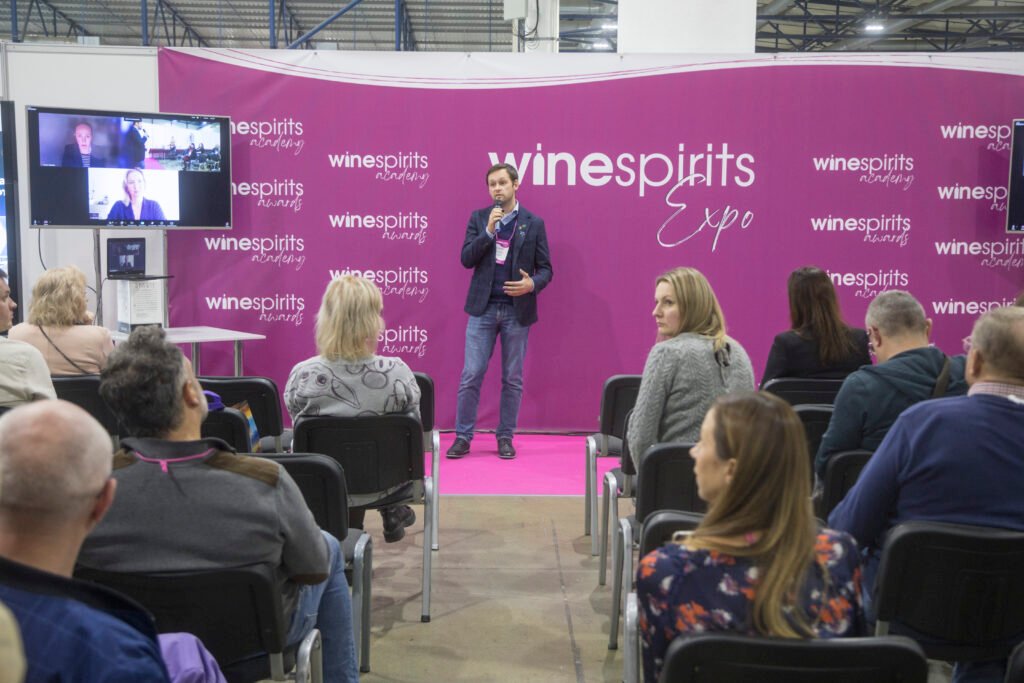
A perfect example of such development was presented at the event by Yuliya Kalenska and Artem Skubenko, founders of Honey Badger, a family-owned production of traditional Ukrainian infusions and liqueurs. These ambitious and skilled young entrepreneurs are convinced that traditional Ukrainian beverages should become as symbolic for Ukraine as Irish whiskey is for Ireland or Cuban rum for Cuba. Notably, Honey Badger was one of the first nominees for the Wine Travel Awards in the “Country’s Business Card” category.
Back in 2015, the family traveled across Ukraine in search of ancient authentic recipes and established a modern production facility. With the efforts of talented technologists, old recipes of traditional beverages were brought to life using advanced technologies. Today, Honey Badger is recognized as a trendsetter in the Ukrainian local beverages market. The company’s founder and technologist is Yuliya Kalenska, while Artem Skubenko is responsible for product development and promotion on both domestic and international markets.
Their production falls into the full-cycle category, as the producers take care of orchards—or even “terroirs”—where the berries used in their beverages are cultivated and carefully selected. Honey Badger’s liqueurs have an alcohol content of 17%, while their infusions are stronger at 38%. Artem explained that some marketers suggested naming their products bitters or liqueurs. However, the key to success lay not only in the exceptional quality of their products but also in their national identity. “We create infusions and liqueurs, and this is how it should remain for both locals and foreigners. This is a category of uniquely Ukrainian beverages: Nalyvkas!” Yuliya and Artem firmly declare.
Artem emphasized that if winemaking is a complex science, working with berries is akin to astronomy, with endless variations of flavors. The Honey Badger team planted their own orchards, delved into horticulture, and have already entered export markets. “We didn’t plan for this to happen so quickly, but the war made its adjustments. If in 2021 we were present in all Ukrainian airports, by 2022 we saw a 60% decline. However, in the summer of 2022, we resumed operations and decided to expand into exports and all Ukrainian retail chains.”
Currently, Honey Badger is present in many retail networks and HoReCa establishments. The company exports its products to Poland and Japan. Additionally, the entrepreneurs call their work a “flavor laboratory.” The company officially provides private bottling services for other craft producers, refines their recipes, and assists with marketing and scaling production to industrial levels. One successful example of this activity is the RUTA brand, a producer of herbal balms. Honey Badger also helps develop recipes and register the production of custom beverages for restaurant chains.
The founders of Honey Badger stress that the key to success lies in promoting the consumption of Ukrainian products: “We are in Ukraine, and there is a war now, so it is essential to support local producers.”
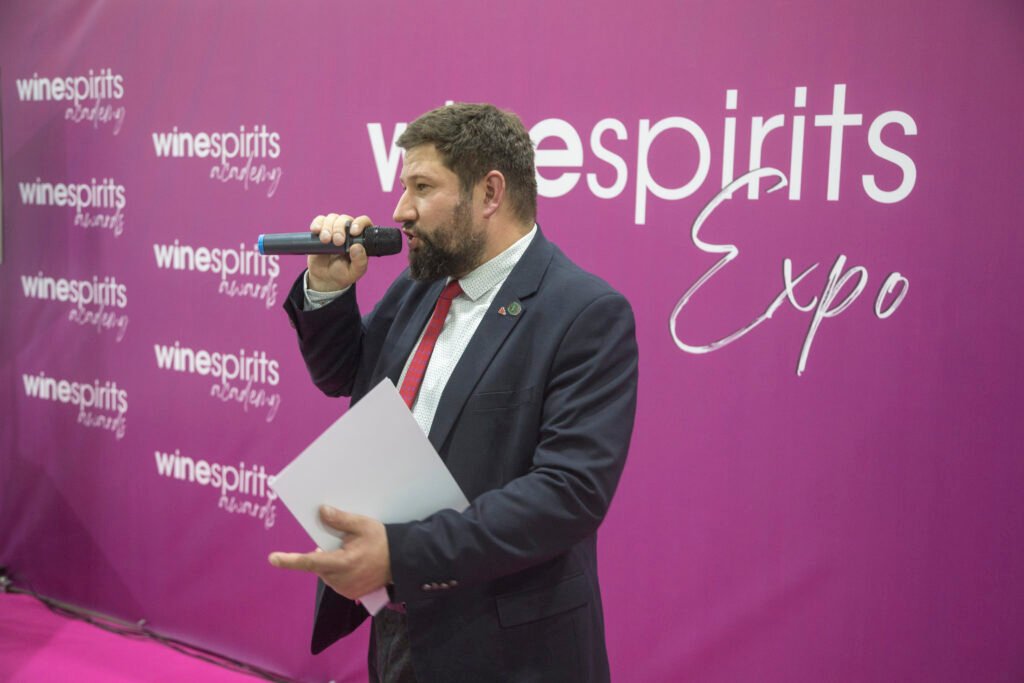
At the conclusion of the event, Volodymyr Pechko, the head of the NGO “UKRSADVINPROM,” delivered a closing speech summarizing key trends, statistics from the past two years, and insights into the export trajectory of Ukrainian winemaking.
Mr. Volodymyr presented statistics from the past three years:
“While the market sees an influx of imports, it is often low-quality and inexpensive products that displace consumers from the domestic wine market. However, we are taking steps to address this. A laboratory for isotopic analysis has been established, which will test wine for authenticity, enabling experts and regulatory bodies to more effectively monitor market quality,” Volodymyr Pechko stated.
The head of “UKRSADVINPROM” emphasized the dynamic development of Ukraine’s winemaking sector, particularly in the area of craft winemaking. Over the past 4-5 years, changes in legislation have led to a 65% increase in the number of wineries, additional licenses being issued, new wineries being established, and new vineyards being planted across all regions of the country.
“Both large and so-called small Ukrainian winemakers deserve recognition and support from the state. They represent new jobs, new enterprises that will pay taxes, produce high-quality wine for the domestic market, and bring foreign currency to the country through exports,” Pechko noted.
During the event, Mr. Volodymyr presented diplomas to the winners of a tasting featuring wines from the flagship Odesa Black grape variety. The selected samples will represent Ukraine at the 100th-anniversary celebration of the OIV in France:
This international initiative, organized by “UKRSADVINPROM” in Dijon, represents yet another step in Ukraine’s winemaking journey toward its own promising future.
As the day wrapped up, attendees were treated to a third segment of the event: a tasting of unique wines from both local and international producers, which further underscored the themes discussed throughout the day. For a more detailed exploration of this tasting and the exceptional wines featured, follow this link here. Additionally, if you missed the profound insights shared by international speakers Richard Bampfield MW and Robert Joseph on the future of Ukraine, catch up on all the details here.
This Wine Travel Awards signature event not only spotlighted the complexities and challenges faced by Ukrainian winemakers but also celebrated their resilience and innovation, promising an exciting future for Ukraine in the global wine arena. As we reflect on the vibrant discussions and the rich tapestry of stories shared, it’s clear that the spirit of Ukrainian winemaking is not just surviving; it’s thriving, pushing boundaries, and inviting the world to discover and embrace its unique wine narrative.
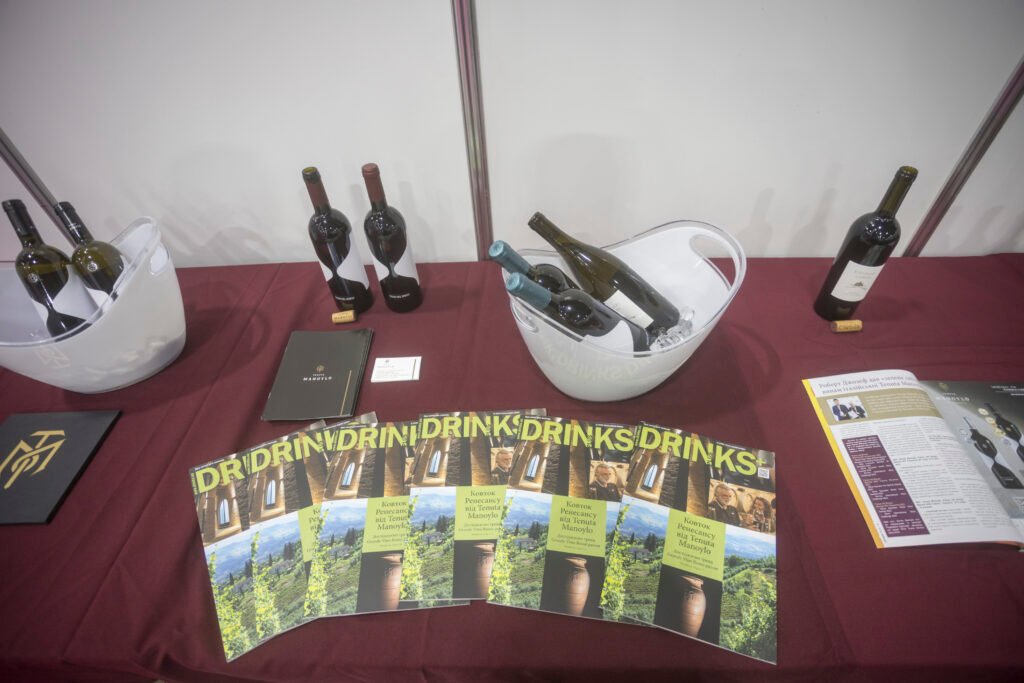
⇒ Join our social networks ⇒ Optimistic D+ editors will take this as a compliment.
⇒ Every like is taken as a toast!
08.02.2026
27.01.2026